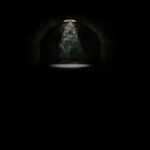The election of Cardinal Robert Francis Prevost as Pope Leo XIV may represent the culmination of a remarkable shift in global Catholicism — one that has seen American Catholic innovation transform how faith is practiced, shared, and sustained in the digital age. While Catholicism has traditionally emphasized institutional continuity and doctrinal preservation, American Catholic entrepreneurs have quietly sparked a technological revolution that may prove as significant as the printing press was to the Reformation.
As we witness this historic moment, it is worth examining how American Catholic innovation has already reshaped global religious practice, and what Leo’s papacy might mean for the Church’s digital future.
Cathedrals of code
While Silicon Valley has spent decades disrupting traditional industries, American Catholic entrepreneurs have been applying similar innovation principles to religious practice. The result? A flourishing ecosystem of “spiritual startups” that have achieved what traditional Church institutions struggled to accomplish: making ancient Catholic traditions accessible, engaging, and relevant to modern believers.
The astonishing success of these ventures is difficult to overstate. Hallow, the Catholic meditation and prayer app, has been downloaded over 20 million times across 150 countries, with users praying through it more than 400 million times since its 2018 launch. It has achieved the seemingly impossible feat of outranking Netflix, TikTok, and Instagram on the Apple App Store, particularly during peak spiritual seasons like Lent. Hallow represents something Vatican officials might have once considered impossible: a profitable, scalable Catholic tech company that effectively evangelizes through algorithms and subscription models.
This American approach to Catholic evangelization starkly contrasts European models, which typically rely on diocesan funding, traditional publishing infrastructure, and institutional sustainability rather than explosive growth and digital reach. The American model embraces rather than resists market dynamics, viewing profitability not as a compromise of mission but as essential to sustainability and expansion.
The podcast phenomenon
Perhaps nothing demonstrates the power of American Catholic innovation more clearly than Ascension’s podcast empire. “The Bible in a Year” podcast, hosted by Fr. Mike Schmitz, reached #1 on Apple Podcasts in all categories twice, outperforming secular entertainment, news, and comedy competitors. With over 700 million episode downloads, it represents the most successful religious podcast in history.
The formula was then replicated with “The Catechism in a Year” and more recently “The Rosary in a Year,” reaching #1 on Apple Podcasts across all categories within its first week of release.
What is remarkable is how these initiatives have transformed daily religious practice for millions. The podcast format seamlessly integrates spiritual content into modern lifestyles, allowing Catholics to cultivate their spiritual journey while commuting, exercising, or doing household chores.
In this way, American Catholic innovators have reimagined how spiritual practices might fit into contemporary life without compromising theological substance.
The Bishop Barron revolution
American Catholic innovation has found one of its most eloquent champions in Bishop Robert Barron, whose Word on Fire ministry thoroughly reimagines how Catholic thought engages with contemporary culture. What began as simple Sunday Gospel reflections became a global multimedia empire reaching millions through sophisticated digital platforms.
Barron’s approach is distinctly entrepreneurial. Word on Fire has amassed an extraordinary 1.9 million YouTube subscribers and nearly 200 million video views since 2007, creating over 1,500 videos that blend theological depth with cultural relevance. Unlike traditional diocesan communications, Barron produces cinematic content that tackles philosophy, literature, current events, and pop culture through a Catholic lens.
Most significantly, Barron announced in January 2025 the founding of a religious order dedicated entirely to digital evangelization — a revolutionary fusion of ancient Catholic structures with cutting-edge mission work. This new congregation will train priests specifically for online ministry, institutionalizing Catholic innovation to ensure its perpetuation beyond any individual’s career. The order formally recognizes that the internet is not an optional tool for spreading the Gospel.
The Chosen’s hybrid model
“The Chosen,” while not one hundred percent Catholic, exemplifies another distinctly American approach to faith-based innovation. Creator Dallas Jenkins bypassed traditional studios through crowdfunding, raising over $10 million from approximately 16,000 donors worldwide. This initial independence enabled authentic religious storytelling without corporate compromise.
The series has since evolved into a global phenomenon, with Amazon MGM Studios recently securing exclusive U.S. streaming rights in a landmark deal. Season 5 alone grossed nearly $60 million at the box office, contributing to approximately $140 million globally across 55 countries. This hybrid model — beginning with crowdfunding and independent production before leveraging traditional distribution channels — represents a uniquely American approach to scaling religious content.
“The Chosen” demonstrates that authentic religious content can achieve mainstream production values and distribution without compromising its core message. This may be the most American aspect — the confidence that faith-based content can compete in mainstream markets when executed with excellence.
The future of catholic innovation
Leo’s election may represent validation of a distinctly American contribution to global Catholicism for many American Catholics, one characterized by entrepreneurial spirit, technological adoption, and innovative approaches to ancient traditions. Early signs appear promising—as Father Prevost, the future Pope emphasized in 2012 the vital importance of modern communication tools for evangelization, particularly highlighting social media platforms as valuable when used properly. He spoke of the need for the Church to become more sophisticated in using these networks to reach those outside traditional catholicism. Whether this interpretation proves accurate ultimately depends on how the new pontificate translates these past statements into Vatican policy.
What remains clear, however, is that American Catholic innovation has already transformed how millions experience faith worldwide. The digital revolution in Catholic practice preceded Leo’s papacy and will continue to evolve regardless of Vatican policy. The Church that Leo now leads is one where millions pray daily through apps, encounter Scripture through podcasts, and find community in digital spaces—innovations that would have been unimaginable just decades ago but now form an essential part of Catholic life for believers around the globe.
Download numbers or subscriber counts won’t measure the ultimate success of these American Catholic innovations, but rather their ability to foster authentic encounters with the transcendent in digital spaces. Technology is neither inherently sacred nor profane—it becomes a vehicle for grace only when designed and used intentionally. The distinctive genius of American Catholic innovation has been precisely this intentionality: applying entrepreneurial methods to spiritual ends without compromising the essence of the faith.
* Federico N. Fernández is a visionary leader dedicated to driving innovation and change. As the CEO of We Are Innovation, a global network of 50 think tanks and NGOs, Federico champions innovative solutions worldwide. His expertise and passion for innovation have earned him recognition from prestigious publications such as The Economist, El País, Folha de São Paulo, and Newsweek. Federico has also delivered inspiring speeches and lectures across four continents, authored numerous scholarly articles, and co-edited several books on economics.
Source: We Are Innovation











